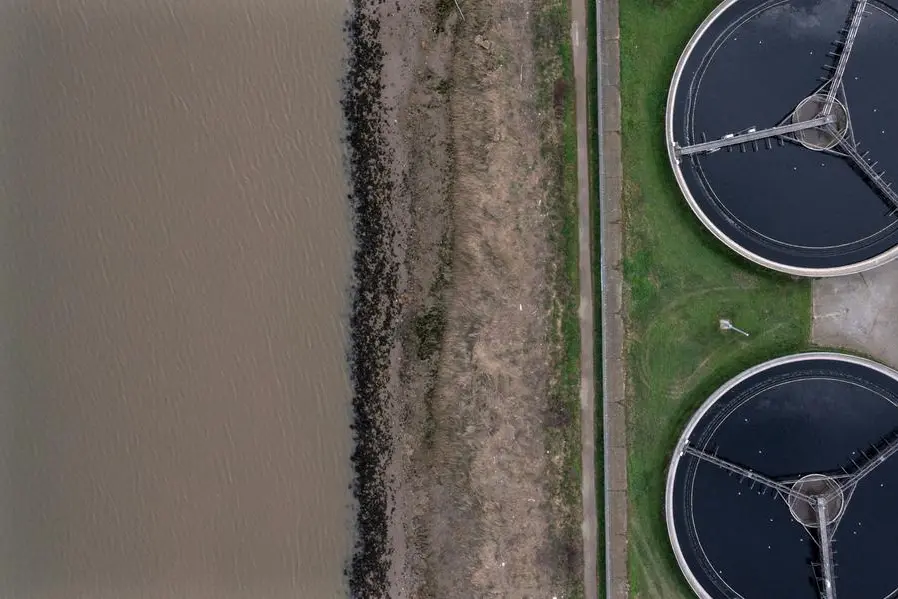PHOTO
Thames Water's parent company has defaulted on a payment, deepening the crisis at the UK's largest water supplier, which is heavily indebted and under fire for failing to stop sewage discharges into the nation's waterways.
The default comes after Thames Water on March 28 said it had failed to raise a major cash injection from shareholders, blaming industry regulations that made its rescue plan "uninvestable".
Kemble Water Finance said in a statement Friday that "as envisaged" payments on a debt of £400 million ($505 million) due on April 2 had "not been paid".
The firm said it had begun to approach creditors and bondholders to "request that they take no creditor action so as to provide a stable platform while all options are explored with all key stakeholders".
The company expected to be in "a position to provide a further update in the coming weeks," it added.
Spokespeople for Kemble and Thames Water contacted by AFP declined to elaborate further on the consequences for the beleaguered supplier.
Thames Water's problems have come to a head since its March 28 announcement.
The cash injection it had been seeking represented most of a £750-million funding lifeline agreed with investors in July to stay afloat.
The company said at the time it was in talks with industry regulator Ofwat over a plan that is "affordable for customers, deliverable and financeable for Thames Water, as well as investible for equity investors".
Ofwat had reportedly refused to bow to Thames Water's demands for concessions, which it said included a 40-percent jump in water bills that would worsen the country's cost-of-living crisis.
Thames Water, which supplies more than 15 million homes and businesses in London and elsewhere in southern England, is saddled with debts of almost £15 billion that have placed it at risk of nationalisation.
It has faced fierce criticism over missing targets to reduce leaks and slash sewage discharges into rivers, despite major infrastructure investment.
Environmentalists have increasingly voiced outrage at the rise in pollution on the UK's beaches and waterways, and have pointed the finger at privatised water companies.





















